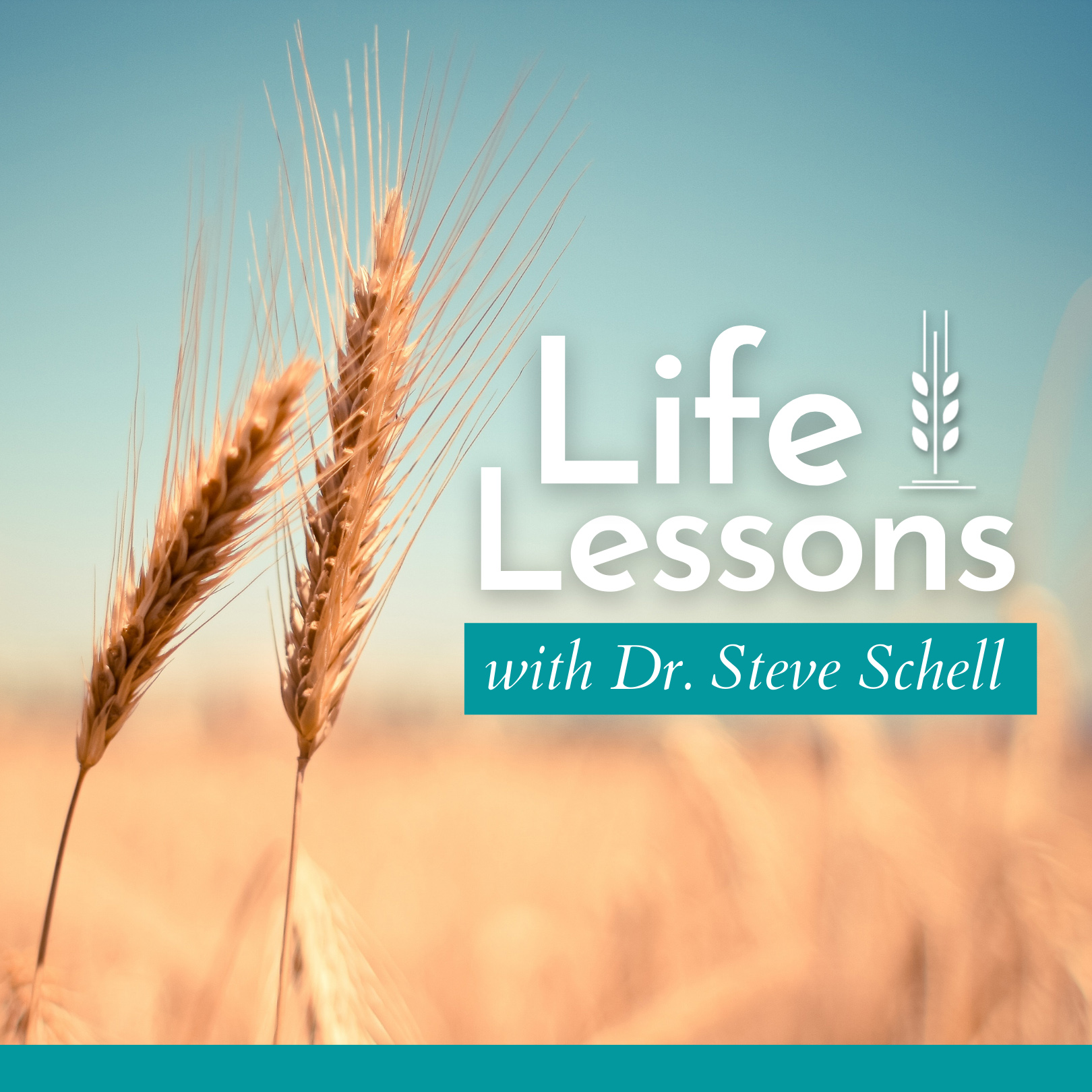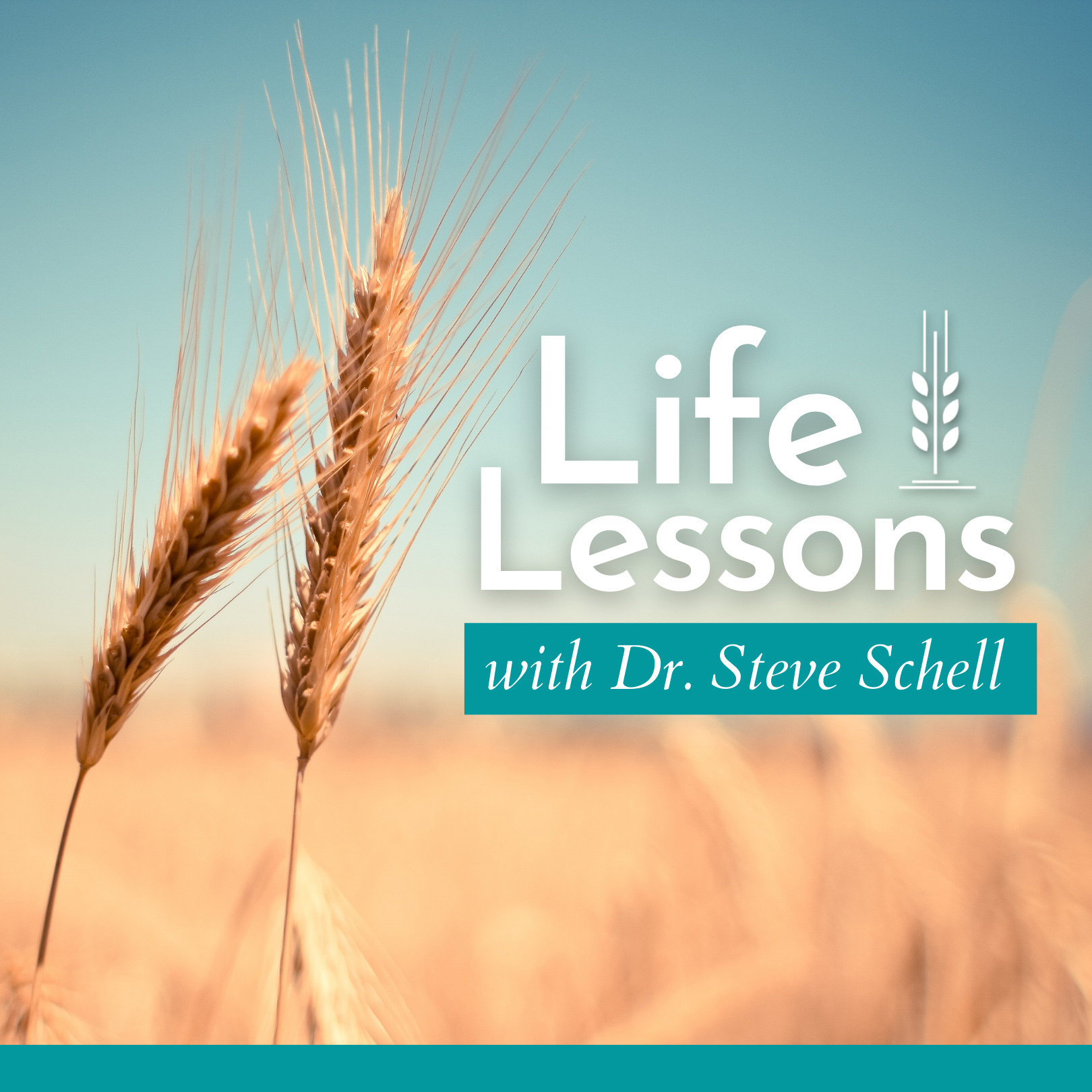
148.8K
Downloads
502
Episodes
Pastor Steve Schell comprehensively teaches through entire books of the Bible pulling out the deep, eternal truths in each section of Scripture without skipping over challenging passages. These sermons will help foster true discipleship for the committed Christian, both young and old.
Pastor Steve Schell comprehensively teaches through entire books of the Bible pulling out the deep, eternal truths in each section of Scripture without skipping over challenging passages. These sermons will help foster true discipleship for the committed Christian, both young and old.
Episodes

Thursday May 08, 2025
Ep 70 Understanding the Cross, Lk 23:44-49
Thursday May 08, 2025
Thursday May 08, 2025
You and I need to understand what it means when we say Jesus died for us on the cross. We say it often with real faith, and we mean it. But what Jesus really did for us isn't particularly clear in our minds. We know He somehow died on a cross.
But the more we understand Jesus' suffering and the dignity with which He went through the crucifixion, the more we see Him as the Son of God, and the more grateful we are that He carried our sin.
To purchase Pastor Steve's newest book Understanding Romans: Life-Changing Lessons from Paul's Greatest Letter, visit Amazon.
Also check out our website at lifelessonspublishing.com for additional resources for pastors and leaders. We have recorded classes and other materials offered at no charge.

Monday May 05, 2025
Ep 69 The Thief on the Cross, Lk 23:26-43
Monday May 05, 2025
Monday May 05, 2025
The saving of the thief on the cross is undoubtedly the most remarkable salvation of all of those recorded in the gospels. Many people believed in Jesus as they watched Him heal, deliver and perform miracles, but this man believed as he watched Jesus die. He had only a few hours of contact with Jesus, during which both endured the horrors of crucifixion, yet, in spite of this, he embraced the essentials of the gospel and was granted eternal life. No one explained to him what he must do to be saved, but as he watched and listened, his heart told him the truth, and he responded with faith. It would be hard to imagine a situation which better reveals the essential elements for salvation. Let's look closely at this man's experience.
To purchase Pastor Steve's newest book Understanding Romans: Life-Changing Lessons from Paul's Greatest Letter, visit Amazon.
Also check out our website at lifelessonspublishing.com for additional resources for pastors and leaders. We have recorded classes and other materials offered at no charge.

Thursday May 01, 2025
Ep 68 Anger at God, Lk 22:47-23:25
Thursday May 01, 2025
Thursday May 01, 2025
As I read this passage describing the arrest and trials of Jesus, there is an ingredient present throughout which startles me. It's the degree of anger which is directed toward Jesus. He's not just arrested, tried and executed. He is mocked and brutalized at every turn. In view of the fact that He did nothing more than teach, heal and deliver people from demons, it's remarkable how much fury is unleashed on Him. Certainly, one explanation for this is the devil's hatred. Satan at last has his chance to treat the Son of God the way he has always wanted to. But there are humans through which his hateful spirit is being expressed, and each person or group seems to have their own reason for anger. Today we'll look at this phenomenon of anger toward Jesus in each of the groups who judged Him on His way to the cross, and then we'll examine our own hearts and ask why it is that people still get angry at God.
To purchase Pastor Steve's newest book Understanding Romans: Life-Changing Lessons from Paul's Greatest Letter, visit Amazon.
Also check out our website at lifelessonspublishing.com for additional resources for pastors and leaders. We have recorded classes and other materials offered at no charge.

Monday Apr 28, 2025
Ep 67 Judas and Peter. Lk 22:47-62
Monday Apr 28, 2025
Monday Apr 28, 2025
In a short span of time these two disciples both experienced a level of personal failure which devastated them. Judas, of course, betrayed the Lord by leading the religious officiais to the Garden ot Gethsemane. Peter blatantly and repeatedly denied knowing the Lord while waiting among the crowd outside the high priest's home. Though Judas' sin was more deliberate than Peter's, both men show great remorse tor their misdeeds afterwards, but at this point the similarities end. Judas ends up committing suicide and perishing, while Peter is restored to his relationship with Christ and his call to ministry. So it's helpful for us to look carefully at the way both of these men handled their personal failures. At some point in time most people bitterly disappoint themselves by doing something they never thought they would do, and if that has or will occur for any one of us, we want to avoid the path Judas took and run with Peter to the empty tomb.
To purchase Pastor Steve's newest book Understanding Romans: Life-Changing Lessons from Paul's Greatest Letter, visit Amazon.
Also check out our website at lifelessonspublishing.com for additional resources for pastors and leaders. We have recorded classes and other materials offered at no charge.

Thursday Apr 24, 2025
Ep 66 Gethsemane, Lk 22:31-24
Thursday Apr 24, 2025
Thursday Apr 24, 2025
Every year many Americans make promises to themselves and others called "resolutions." These commitments to improve behavior are notorious failures. People promise all sorts of things, but usually these can't be kept for more than a month or two into the new year. The problem, of course, is that our will power isn't strong enough to resist the temptations that lure us back to old habits. Appetites, fears, tempers and emotions pull on us until resolve weakens, and once again we fall under their control. We may know what's right to do, but we can't seem to make ourselves do it. After several failed attempts, discouragement sets in, leaving us feeling hopelessly trapped. But a Christian does not have to fall prey to this familiar cycle. We have access to a source of power that can enable us to overcome the forces of our flesh and the temptations of the devil. In the garden of Gethsemene we see Jesus laying hold of this power. He explains the principle to us with the statement, "Keep watching and praying that you may not come into temptation; the spirit is wiling, but the flesh is weak" (Lk 14:38). In our lesson today, we wil learn the secret of overcoming temptations and of experiencing genuine transformation.
To purchase Pastor Steve's newest book Understanding Romans: Life-Changing Lessons from Paul's Greatest Letter, visit Amazon.
Also check out our website at lifelessonspublishing.com for additional resources for pastors and leaders. We have recorded classes and other materials offered at no charge.

Monday Apr 21, 2025
Ep 65 Humility, Lk 22:25-30
Monday Apr 21, 2025
Monday Apr 21, 2025
We are still in the upper room with Jesus and the disciples. In these last moments Jesus has before He is arrested, He wants to teach His disciples, among other things, about humility.
After Jesus and the disciples have just enjoyed partaking of the Lord's supper, Jesus watches them break into an argument about who is the greatest. Jesus wants His disciples to be humble; and they are not.
And just like the disciples, we are prone to the same prideful reactions and fleshly desires. In this episode we will look at several keys to humility so that we would cultivate this important characteristic in our own lives.
To purchase Pastor Steve's newest book Understanding Romans: Life-Changing Lessons from Paul's Greatest Letter, visit Amazon.
Also check out our website at lifelessonspublishing.com for additional resources for pastors and leaders. We have recorded classes and other materials offered at no charge.

Wednesday Apr 16, 2025
Ep 64 The New Covenant, Lk 22:1-23
Wednesday Apr 16, 2025
Wednesday Apr 16, 2025
In this episode, we're going to see the final passover service the Lord served to His disciples. We will look at Judas' betrayal, at the upper room and Passover. And then we will look at the glorious New Covenant Jesus introduced the disciples to through the taking of the first communion.
To purchase Pastor Steve's newest book Understanding Romans: Life-Changing Lessons from Paul's Greatest Letter, visit Amazon.
Also check out our website at lifelessonspublishing.com for additional resources for pastors and leaders. We have recorded classes and other materials offered at no charge.

Monday Apr 14, 2025
Ep 63 The Last Days, Lk 20:5-36
Monday Apr 14, 2025
Monday Apr 14, 2025
It's Tuesday afternoon of Jesus' final week in Jerusalem, and He and His disciples are heading back to the Mount of Olives where they will camp for the night. As the road rises, going up the hillside, the Temple comes into view with the setting sun glistening behind it. Though it has been 49 years in construction, it is still not completed, yet the beauty of the gold and white marble is breathtaking. While the disciples admire the view, Jesus stuns them by prophesying that it will one day be dismantled, stone by stone. They ask when this will happen and when He will come again, assuming the destruction of the Temple would take place at the end of the age (Mt 24:3). Over the next twenty-two verses Jesus answers both questions, though Luke leaves out some information supplied by Matthew (24:4-31) and Mark (13:5-27). He explains that the Temple wil be destroyed long before He comes again and gives signs to watch for and instructions to His followers for both events.
To purchase Pastor Steve's newest book Understanding Romans: Life-Changing Lessons from Paul's Greatest Letter, visit Amazon.
Also check out our website at lifelessonspublishing.com for additional resources for pastors and leaders. We have recorded classes and other materials offered at no charge.

Thursday Apr 10, 2025
Ep 62 The Widow's Gift, Lk 21:1-4
Thursday Apr 10, 2025
Thursday Apr 10, 2025
The subject of finances is one that can make us uncomfortable, but there are things we need to do with our finances as Christians in order for us to be blessed of God. And the model for us is this marvelous widow who gives all she has out of a faith-filled and generous heart.
Though we are not told, we have to ask the question: What possible reason could there be for her to do what she did? We will answer that question and learn from her beautiful example on this episode.
To purchase Pastor Steve's newest book Understanding Romans: Life-Changing Lessons from Paul's Greatest Letter, visit Amazon.
Also check out our website at lifelessonspublishing.com for additional resources for pastors and leaders. We have recorded classes and other materials offered at no charge.

Monday Apr 07, 2025
Ep 61 A House of Prayer, Mk 11:11-22; Lk 19:45-20:16
Monday Apr 07, 2025
Monday Apr 07, 2025
We begin this episode in Mark 11, and we hear Jesus use prophetic symbolism when he comes across a fig tree on the road. The fig tree was one of the major symbols of Israel, so the fact that this fig tree had leaves with no figs indicates something was wrong, since figs and their leaves always come out at the same time. The Messiah is looking for fruit on His tree. Does the religious structure have leaves and fruit? In other words, are people being made godly in their character? Do people love God? Do they care about the lost?
As we look at this section of Scripture and then at Luke 20 with Jesus' response in the temple, which was intended as a place of evangelism for other people groups, we see a righteous and indignant Lord judging His people as he drives the animals and merchants out of this area.
What's going on here? Listen to this episode to find out!
To purchase Pastor Steve's newest book Understanding Romans: Life-Changing Lessons from Paul's Greatest Letter, visit Amazon.
Also check out our website at lifelessonspublishing.com for additional resources for pastors and leaders. We have recorded classes and other materials offered at no charge.
